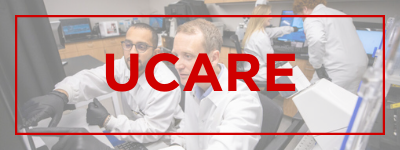UCARE: Undergraduate Creative Activities and Research Experiences

UCARE: Research Products
Date of this Version
Spring 4-13-2016
Document Type
Poster
Citation
Miller, H., & Knoche, L.L. (2016, April). Supporting early childhood teacher’s use of parent engagement strategies: what is the process and content of coaching sessions during the Getting Ready intervention. Poster presented at the University of Nebraska-Lincoln Undergraduate Research Conference at the University of Nebraska-Lincoln, Lincoln, Nebraska.
Abstract
Coaching provides a method of professional development allowing teachers to increase in their knowledge, skills, attitudes, and values to support their students success (Weaver, 2004; Kapadia, Coca, & Easton, 2007; Smith, 2007). The purpose of this study is to understand how early childhood education coaching varies based on different teacher factors. Our specific research questions, how do (1) the topics discussed and (2) the process used during coaching in an early childhood parent engagement intervention vary based on teacher’s education level, specialized training, years of teaching experience, and years of experience in early childhood, specifically determined how coaching varies. The topics discussed during an early childhood parent engagement coaching session are primarily in the teacher’s control. The topics that are discussed are chosen based on what the teacher feels is necessary to talk about. Thus, it makes sense that there is greater variation in the topics discussed at coaching sessions based on the different teacher variables. Teachers with more education, more training, and more experience were talked more about child intervention and facilitating partnerships. This might be because with more education, training, experience, teachers have more knowledge about how to make a child successful. The processes used during an early childhood parent engagement coaching session are primarily in the coach’s control. The coach is trained touse a protocol for each session. In this regard, it makes sense that there were less variation in the processes of a coaching conversation because the Getting Ready intervention is wanting coaches to use similar processes, regardless of the teacher’s education, training, and experience. However, there was some differences in the observation/action/practice and reflection processes of a coaching conversation. These processes were used more with teachers who had more education, training, and experience. This group of teachers could have more practice in doing these processes from their extra education, training, and experiences.


Comments
Copyright © 2016 Halle Miller and Lisa Knoche